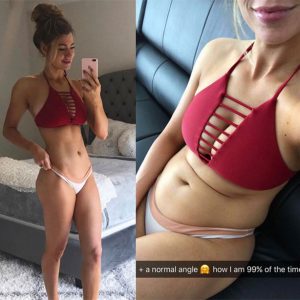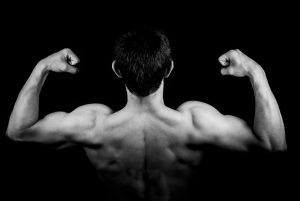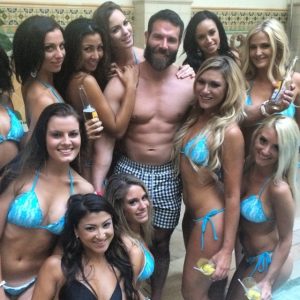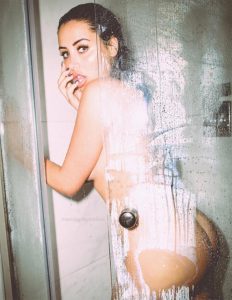
Tips and facts!
Stats from: https://www.ons.gov.uk
SOCIAL MEDIA AND THE ONLINE DISTORTION OF BODY IMAGE
We’ve covered a lot of topics. From men to women, Facebook to Instagram a lot has been discussed. I personally find it so interesting, because in a world where social media has almost taken over, where you walk into a restaurant and see 50% of the customers are scrolling down their news feeds on their shiny smartphones, why wouldn’t you want to know more about what social media does to us? BUT how do we really know what is real and what is fake online? How can we decipher between artificial and authentic?
Everyday, millions of people all over the world post photos to their social media accounts, including the incredibly popular site Instagram, Twitter, Facebook, Tumblr and so on. But what we have to think about and consider, is how much of it is truly real. People can easily portray the most perfect version of themselves online, hiding behind computer or phone screens, editing endlessly and filtering the photos until they look really different to the original – but chances are they do look ten times better than the original. With effects like airbrushing and teeth whitening literally at people’s fingertips and with the ease of access to all these filtered techniques, it’s hard to resist.

How hard is it to know what is real and fake?
Everyone wants to look their best which I totally understand. However, with all these different available touch ups, it makes the line between reality and the unreal pretty blurred. Accounts on social networks such as Instagram are constantly posting flawless photos that we have no way of knowing if they are truly authentic and it raises unrealistic expectations of body image for both women and men even higher. We should not encourage complete photoshopping and changing your appearance to get more ‘likes’ and ‘comments’ because let’s face it, no one is perfect!
I love the campaign that the global brand Dove are promoting, all about real beauty. On their social media accounts such as Twitter and Instagram they are endlessly encouraging unique beauty, directly interacting with their followers and using hashtags such as #realbeauty and #raisethebeautybar, clearly trying to promote that everyone is different and unrealistic expectations of what beautiful is need to be rid of. On their Instagram account Dove frequently post photos of women who are all different sizes, ages, ethnicities and all are accompanied with a hashtag of #realbeauty.
This is such a positive message to send out from a global company that will have a big influence on young people, all about body positivity and showing that everyone is different. Encouraging uniqueness is a wonderful thing in my eyes.

Taken from @annavictoriafit Instagram
Another positive role model that has come to my attention is Anna Victoria. She is a verified Instagram member with way over 1 million followers and is the creator of ‘The Fit Body Guides’. Although she often posts photos of her amazing physique to her social media, she has recently posted an inspiring photo that shows the reality of women’s bodies.
The post features a collage of two photos; the first being a full body mirror-selfie of herself showing her toned body, and the second being one of her body sat down showing off her ‘rolls’. The caption accompanying it is a long one, explaining how she loves her body and the natural cellulite and stretch marks that she has, emphasising that all of this is natural and everyone should love themselves. It is really encouraging that someone with such a big following on Instagram is promoting body positivity and showing the reality of the human body without filters!
We have to become more aware of what’s real and what has been majorly enhanced on social media, because no one is airbrushed and flawless in real life. The media as a whole can distort expectations of body image and social media is a dangerous platform that can promote fake images that make others feel inadequate.
I’ve come up with a few tips that I do myself when it comes to social media that I thought I’d share with you as we part at the end of this blog! I never compare myself to other people on Instagram and although this may seem hard, instead I just decide to tell myself something positive or that I like about myself. Comparing yourself to deceiving photos on social media will never end well. Another one is to turn your phone off or just put it away at 9pm some nights. It means you’ll interact with people in REAL life and frankly I felt refreshed after trying it out. Lastly, how about having a day (or even two if you’re feeling ambitious) where you choose not to use social media at all? Find a hobby or read a book and just avoid the feisty playground that is social networking! You never know, it might open your eyes to a passion you didn’t know you had.
So, next time you look at down at your own body begrudgingly, after seeing a ‘perfect and flawless’ post on social media, think about the edits and filters that it could have gone through before being posted for everyone to see! Food for thought, people will more often than not post the ‘perfect’ version of themselves, the version they want everyone else to see but perhaps not the true and genuine version.
Thanks for reading guys, very appreciated!
xoxo
So, let’s talk about men. Body image online affects men as well as women and it can of course, have the same negative outcomes. Looking at celebrities, there are noticeable differences when it comes to how men expose themselves and the messages they promote in comparison to women.

Muscle doesn’t mean perfection!
As (hopefully) you read on my previous blog, there are in my opinion different types of celebrities who use their social media accounts as a fan base and to post whatever is going on in their exciting lives. I discussed Selena Gomez and her classy posts, contrasting to Emily Ratajkowski ‘s exposing selfies. Reality stars also have huge fan bases online, Marnie Simpson (from Geordie Shore) explicitly posing for her Instagram followers, conflicting to Billie Faiers’ (from The Only
Way is Essex) picture-perfect family life (excuse the pun!) but for men, there are both similarities and differences.
The most followed man on Instagram currently is in fact the professional footballer Cristiano Ronaldo and although he’ll have impeccable fitness and a (chiselled!) body, he very rarely posts any topless or half-naked photos. His photos consist of his career and his huge success, a really positive message for his vast number of followers and young people – there are no signs of promoting stereotypical body image but instead encouraging hard work and success. I would say Ronaldo is ‘playing’ it right!
In acknowledging this, perhaps it could be said that the expectations for men and women are different when posting online. Do women such as Emily Ratajkowski and Marnie Simpson feel they have to expose their bodies to become more famous and liked? I did struggle to find men who were considered very famous (to match Emily, Selena and so on) or with a heavy number of followers that got their kit off as much as women do. Or is it that it’s more acceptable for women? I would find that hard to believe. It is a difficult and controversial topic, the social norms and expectations of both genders body image differing.
However, an example of someone who is doing the opposite, is Dan Bilzerian. Not only does he often pose topless on Instagram exposing huge muscles, he is surrounded by half-naked or often fully nude women 24/7.

Surrounded by ‘body idyllic’ girls – it’s just not realistic. Taken from Dan’s Instagram.
They are nearly always very thin and curvaceous, with big breasts and legs that go on for miles, rarely will you see a different body shape scrolling down his feed. This man is only famous for being good at poker (and winning a LOT of money as a result) and then becoming ‘Instafamous’. He is promoting the idea that if you become rich and famous, you can be surrounded by stereotypically ‘hot’ girls and that their tiny body shape is probably the only one you’ll want. Not only is this a really bad message to send out to boys and men, but is also a derogatory attitude towards women…surely we can all agree these messages and ideas are not the ones we want to be sending out to young people?
A reality star that follows a similar pattern to that of Marnie’s is Gary Beadle also from MTV’s Geordie Shore. He does post topless photos, a slight scroll down his Instagram feed revealing a completely nude selfie with a strategically placed towel…so maybe there’s a trend with reality stars? Or is that a really broad generalisation? I guess this could be whole other topic. The point is, these role models that constantly post exposing photos on social media need to be aware of that affect they can have!
I delved in a little further and found a study that looked into the impact media has on male’s, since there is little research into it. In fact, it did find that when men were exposed to body ‘ideals’ they became more depressed and dissatisfied with their bodies compared to the men who weren’t exposed to these ideals. This does show that of course men can be affected just as much as women, we need to be aware of this and discourage the idea that what you see online and on social media is realistic – the majority of the time these body shape ‘ideals’ are unattainable and you certainly don’t need them to be classed as attractive. What happened to personality?!
Thanks for reading guys, don’t forget to check for new blogs!
xoxo
There are different types of celebrities that use social media as a platform, in my opinion. Saying this, most celebrities have a huge influence online that can be global. There are the celebrities that already have a huge fan base, such as artists and actresses – Selena Gomez conquering Instagram with a whopping 107 million followers, making her the most followed person on this extremely popular social network. This means that she, amongst other hugely followed artists and actors, has almost a duty to be a positive role model on social media and encourage body positivity. Upon looking at Selena’s account, it is a rarity that she is seen in minimal clothing or looking super skinny – she doesn’t feel the need to post half-naked photos or pictures of a super strict diet consisting of just veggies.
Opposing this, Emily Ratajkowski is an actress and model who has recently had a shinier spotlight directed at her. After playing a part next to Ben Affleck in Gone Girl and working alongside Zac Efron in We Are Your Friends she has become better known and also has millions of followers on Instagram, although nowhere near as many as Selena Gomez. Emily is often seen posing with minimal clothing, nearly every other post being one in a bikini or ‘sexy’ lingerie. Of course, Emily has an incredible body that I’m sure she works really hard to maintain but it is also setting unrealistic expectations for other young women and girls that simply can’t attain it.
There are many, many celebrities that take to social networks such as Twitter and mainly Instagram to post photos that will make ‘normal’ people feel inadequate and as though they are not as beautiful simply because they have a different body shape. This is the complete wrong message that should be sent out, particularly by celebrities or famous people that have such an influence online.
There are the other celebrities that have become famous through things like reality TV. These are essentially ‘ordinary’ people who have gained fame through partaking in reality TV programmes such as Geordie Shore, Made in Chelsea, The Only Way Is Essex…to name a few! The celebrities from these types of shows normally tend to have no particular talent, and are loved and watched because of their normal lives and the drama that goes on within them. Since they are ‘normal’ people it means that audiences will be able to relate and identify with them and I think that this makes them also important role models. Upon further speculation, there are almost both extremes when it comes to these reality stars.
MTV’s Geordie Shore star, Marnie Simpson, who has a hefty number of 2.4 million followers often posts ‘provocative’ photos and it doesn’t take much scrolling to see full nude pictures of her! At the other end, there is ITV’s The Only Way is Essex star Billie Faiers who made her fame also through reality TV, and although she has less followers at 1.3 million she is seen consistently posting pictures of her family-orientated life. Marnie’s often exposes her petite body, the photos often relatively explicit and objectifying, another negative message to be promoting towards young women and girls.

Taken from Marnie Simpson’s Instagram
You do not need to essentially get naked and expose yourself to be accepted or get likes and comments or be considered beautiful! Although personally I do not think there is anything wrong with showing off your body when you’ve worked really hard for it, there is a boundary and displaying too much of your body on such a widely used platform like Instagram is not the right image to be portraying.
Lastly, there are the celebrities who have become famous BECAUSE of social media. As a little recommendation, check out Clean Eating’s Dirty Secrets on BBC iPlayer because it really opened my eyes in relation to bloggers and the influence they have. I had a look at a particular YouTuber named Fleelee the Banana Girl who literally promotes the belief that meat is poison for your body and ‘raw’ food is the only way to be healthy and fit. How crazy is that?! There are hundreds of YouTubers that promote different diets and eating habits, but many of them aren’t even qualified nutritionists or dieticians. Another YouTuber had claimed that drinking things like milk and calcium products will cause a calcium deficit. I’m no scientist but even I know that is complete rubbish! I can’t get my head around it. Vastly popular bloggers watched by millions everyday are promoting incorrect advice to get that ‘perfect beach body’ and it can make people seriously ill. Do your proper research and talk to doctors if you’re having any doubt at all!
Girls should be urged to love themselves and to become body confident whatever their shape is. We need to be encouraging and promoting the message that everyone is different and you do not have to be or have a particular body shape in order to be classed as beautiful. Self-confidence is a hugely important ordeal that women and men should be stimulated to feel and succeed in, in order to stop negative outcomes such as eating disorders and depression or just real unhappiness.
What about men I hear you ask?! There’s just so much to say on such a hot topic you’ll have to check out my next blog!
Thanks for reading guys
xoxo
Facebook. The most used social network. 1.79 billion users as of 2016, beating any other social media site. I’m sure this number will continue to grow and so we need to be cautious about the messages it can promote. Although it’s been found that face-only selfies are posted more than body ones, overall body photos are not uncommon. As with Twitter, typing in just the word ‘thinspiration’ on Facebook will quickly bring up photos of very thin women with unattainable bodies. And guess what? These photos often get hundreds of likes and comments. And what does this do? It makes the women and girls that don’t get this response feel inadequate and dissatisfied with their own bodies and faces – a negative outcome from Facebook!
Evidently, a huge amount of people use Facebook, of all different age ranges. Of course I am a member, along with my mother and even my grandmother – who is nearly 80! It has actually been found that young women and teenagers spend around two hours on Facebook everyday and as well as this, millions of photos are posted on to the site every hour. This means that there are millions of photos for people to be comparing themselves with and many opportunities to then become dissatisfied with their own appearance. I know that I for one definitely do worry about looking to chubby or having awful skin in photos, exhaling heavily when I see that I’ve been tagged in photos that I am yet to see my appearance in. However, I’ve come to realise that in real life it doesn’t really matter. No one looks good in every single photo, where’s the fun in that?!
The photos posted will include ones posted by celebrities but also family and friends, both close and distant and comparing yourself to any of these members can be harmful. As mentioned in my blog focussing on Instagram, eating disorders can indeed occur due to overuse of social media and the constant comparing. In addition to this though, mental health issues can occur as well. Unfortunately, Facebook has been linked to causing depressive symptoms. Continuously comparing yourself to other photos that you deem more attractive will bring your self-esteem down, causing negative feelings towards yourself and your body but people still continue to spend hours upon hours on Facebook – sometimes without realising the damaging outcomes it can result in. So although lots of people won’t be worried about looking their best in every selfie or comparing themselves to the ‘skinny minny’ on their timeline, other people do concern themselves and it is these people that need the positive encouragement to get body confident.

The most used social website ever currently…are you impressed?
Of course, Facebook has many pros. People and family can connect from literally all over the world, instantly messaging and video calling – which is a truly amazing advance and can lead to positives such as better family or romantic long distance relationships. People also get a lot of pleasure when it comes to sharing their lives on Facebook, finding new friends online and feeling part of an online community. There are also many ‘groups’ and ‘pages’ that promote healthy eating and getting fit in a positive way. There are also groups offering support and a place to talk for things like mental health which is definitely putting such a huge online platform to really good use.
Liking, sharing, commenting is all part of the fun that is Facebook but these activities can evidently have harmful effects. Some people are even emotionally connected to Facebook which in my opinion and I’m sure many others, is just not healthy. It is important to unplug from Facebook and do things in the real world, next to enjoying the fun of online social activity. On that note, I’m signing off!